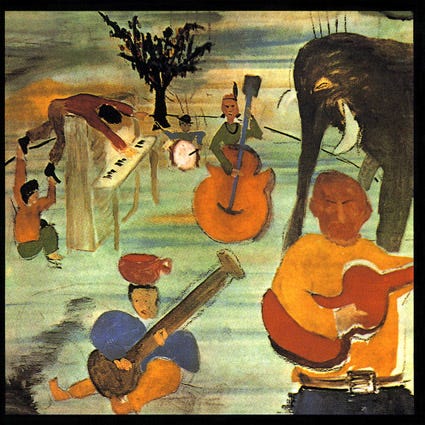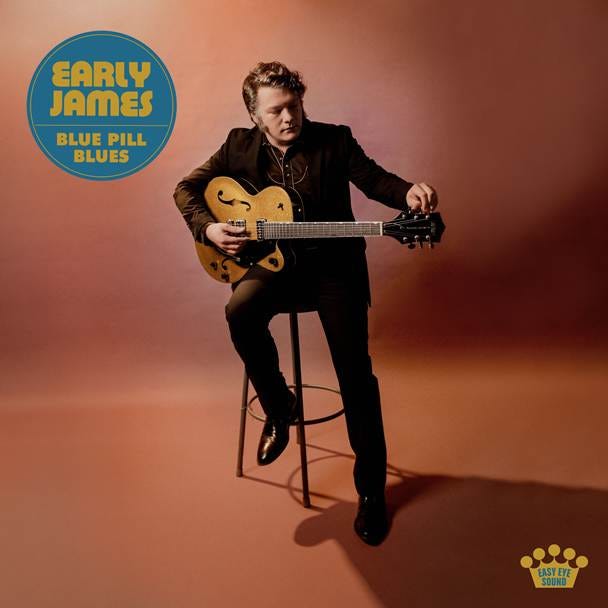By guest author Y0324Y.
Now, I want to make something very clear at the outset of this piece. I am not an angry person (lie). It gives me no pleasure to call out others and accuse them of being cucks ‘n’ cowards (another lie), but I just can’t let some things go. The only thing I hate more than an eternal enemy is a turncoat. Someone who turns his back on the land and people he sprouted from for a treat. A crumb of validation from the mainstream at the cost of his integrity. This one’s been gnawing at me for quite a while now, and I’d like to elaborate on one of the more disgusting tendencies of libtards: unadulterated sadism. Walk with me for a few minutes…
I’m sure most of you are familiar with the eponymous 1969 album by The Band, a rollicking ride through the roots of Americana. The record and its older brother Music from Big Pink are brilliant testaments to the idea that you can just sidestep the fads and fixations of the current moment without being hacky or gimmicky. At about this time, the psychedelic movement was still in full swing… In-A-Gadda-Da-Vida, Electric Ladyland, etc.… prolonged, flashy expansions of the sonic pallet (at least for the era). In avoiding those trappings altogether, The Band left a more lasting body of work than most artists of that period. (The same might apply to The Kinks Are the Village Green Preservation Society by The Kinks, for example.) The highlight of the album is without a doubt its (now) most controversial track, a song written for the fallen and disillusioned people of the War of Northern Aggression. “The Night They Drove Old Dixie Down” is an immensely moving and somber anthem, detailing the destruction witnessed by Virgil Kane (our audience POV character) at the hands of the Union army.
Levon Helm sings in the first verse:
Virgil Kane is the name,
And I served on the Danville train,
’Til Stoneman’s cavalry came
And tore up the tracks again
For those familiar with the history of that era, the song feels authentic, but for those whose roots stretch back to that time, whose families feel the wounds of that great conflict, the track is a cathartic mourning of lost life and crushed dreams. Written by Jewish-Canadian Robbie Robertson, it’s one of the most sincere and affectionate gestures towards the Southern people ever heard or seen in contemporary American pop culture.
But of course, the song is blasphemy in modernity… all humanity must be stripped from the Southern people to conform to our fashionable political narrative. They must be humiliated and made to repent for the crime of being who they were. They must be made to suffer posthumously through slander. The song, if acknowledged at all, must be deconstructed or even re-written… and eventually, it was.
Enter singer-songwriter Early James and his backing band The Latest (or The Gayest, as it gives me an adolescent chuckle; and yes, he has a song called “Blue Pill Blues,” which you’ll come to realize is quite appropriate). An Alabama native, he came to prominence in the Year of St. Floyd, garnering critical acclaim for his debut record Singing for My Supper. Suffering from the same terminal mediocrity that befell his other Bama musical contemporaries (e.g., St. Paul and The Broken Bones, Alabama Shakes), his schtick is warmed-over, kitschy country blues, featuring his overwrought, raspy, corny vocal stylings which really drive home the “bargain-bin vinyl at Barnes & Noble” vibe one gets while being burdened with listening to his work. That being said, I come from the same state and have no problem seeing a fellow quirky white boy get his bag (to borrow an urban colloquialism). If it’s any consolation, there are plenty of musicians out there who draw my ire for much less, but nevertheless, there’s one event that has made me interminably angry towards Early.
During Marcus King’s tribute show for The Last Waltz (a concert film about The Band’s “last gig,” directed by Martin Scorsese) in late summer of 2020, following that magical Summer of Love we all remember so fondly, Early was set to perform a new rendition of “The Night They Drove Old Dixie Down” with new lyrics he penned himself! Splendid! Though I wonder why he felt the need to drop his suspenders and plop a lovely heap of stool on one of the 20th century’s greatest songwriters? In his words, he “wanted to make it palatable.” Which begs the question though, what made the original so unpalatable? The song itself is not political one way or another. If anything, it’s ANTI-POLITICAL. ANTI-WAR. ANTI-SUFFERING. In a word, it’s sympathetic. And if you guessed that the original all too adequately humanizes a people who, to this day, receive nothing but scorn and derision by the popular consensus, DING, DING, DING! You get a treat! Which is exactly what Early wanted, with all his heart! Treats, a pat on the noggin, followed by a belly rub. “Good boy!” is all he wanted to hear, and that’s what he got. A write-up in Rolling Stone and accolades across the board for his “stunning, brave” deconstruction.
Imbibe the limpwristed, libtarded screed here:
In hilarious fashion, the backing band kicks the song off with… a flub on the first beat, after the horn intro. Beautiful. Just perfect. Not quite my tempo, to quote Terence Fletcher, but let’s focus on the rewrite of those lyrics.
Here’s a sampling of his third verse:
Unlike my father before me,
Who I will never understand
Unlike the others below me,
Who took a rebel standDepraved and powered to enslave
I think it’s time we laid hate in its grave
I swear by the mud below my feet
That monument won’t stand,
No matter how much concrete
And changing the chorus to: “Tonight we DRIVE old Dixie down”…
Compare that to the ORIGINAL lyrics from that third verse:
Like my father before me,
I will work the land
And like my brother above me,
Who took a rebel standHe was just eighteen, proud and brave,
But a Yankee laid him in his grave
I swear by the mud below my feet,
You can’t raise a Kane back up
When he’s in defeat
Now, I have many problems with this performance, the least of which is the idea that Early holds political views differing from mine. My views are my own, as his are his. Nothing much either of us can do for the other in that regard. I’m a reactionary; he’s a bleeding heart. I’m a small-town hayseed; he’s an enlightened vagabond. I respect our differences. We lead different lives. What I cannot abide is his foul, putrid execration of his kin. Don’t be fooled. He’s not imposing. His admonishments are not fiery. They are weak and sniveling, but no less repulsive. He would sell his birthright for table scraps. He postures as a part of a moral vanguard, but in reality he seeks soft power, clout, credibility, assimilation into that post-liberal morass which deprives everyone and everything of dignity or soul.
I take particular umbrage with “Unlike my father before me \ Who I will never understand \ Unlike the others below me \ Who took a rebel stand.”
Turning his back on his forefathers and positioning himself morally superior to the dead. A coward loves to scorn the deceased, because they offer no rebuttal. No opposition. Luckily for us, cowards can’t fight. If they believed in anything, they wouldn’t even have the courage to stand up for themselves. People like Early will be forgotten. They pose no immediate threats, but they are snakes… and snakes tell lies. Confront their lies, and sing true songs. Those are the songs that last.











"I hope we piss off the right people by changing the words"
These people are too shallow to even deserve our contempt.
I recall reading about Mr Early’s “brave” rewrite at the time. As a fellow Alabamian, I took it as a direct affront. I had forgotten about it ‘til now. And now, I’m “affronted” all over again. Thanks.
Nota bene:
His Wikipedia - “James was born and raised in Troy, Alabama where he was raised by the women in his family.”
His tour page denotes few shows in the South (and many shows in Europe), but he will be in Charleston on July 20th. Perhaps a few hale and hardy Southrons should attend and give him a good ole Rebel Yell.